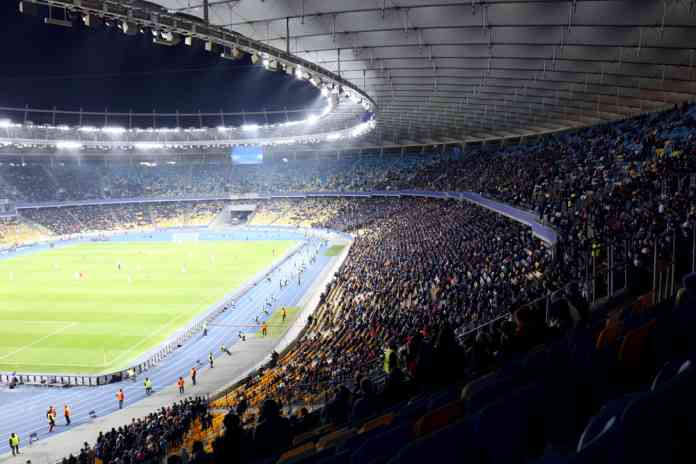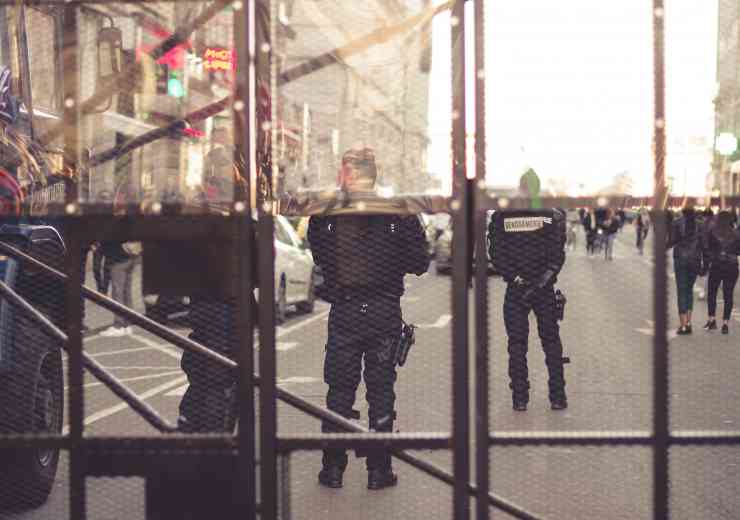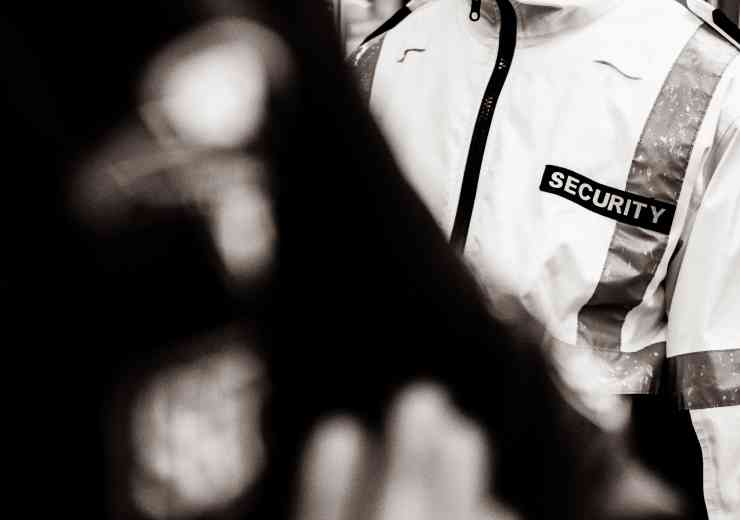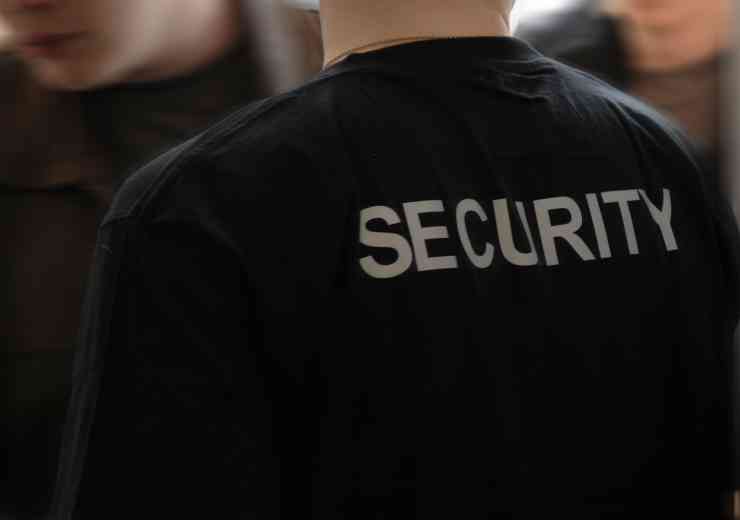
Planning ahead for Euro 2028
David Stewart looks at some of the security considerations for the organisers and decision makers of the UEFA EURO 2028 competition in the UK and Ireland.
On 16 October 2023, a qualifying match for the Euro 2024 Football championships, between Belgium and Sweden in Brussels, was postponed after the killing of two Swedish supporters by a gunman who was later traced, and shot dead by Belgian Police. Islamic State subsequently claimed responsibility with the suggestion being that the Swedish fans had been targeted in retaliation for perceived anti-Islamic protests that had been held in Sweden.
This attack, and the associated postponement of the match, came only three days after UEFA announced that the 2028 Euro Championships would be awarded to a joint bid by the Football Associations of the UK (England, Scotland, Wales, Northern Ireland) and the Republic of Ireland.
In much the same way as the 7/7 attacks in London came in the immediate aftermath of the announcement that London would host the 2012 Olympics, the timing of the 16 October attack served to highlight one of the many challenges involved in delivering a safe and secure event in 2028.
Work on the bid commenced as early as 2019 led by UK Sport, in conjunction with the governments of the four UK nations plus the Irish government and the associated Football Associations. In the summer of 2021, UK Sport appointed Intelligent Risks (IR) a company with expertise in major event security, to deliver a high-level tournament security risk analysis, security concept of operations, reviews of 14 prospective stadia, a security master plan and QS analyses to estimate the required tournament wide security resources and budgets.
Having worked alongside consultants from Intelligent Risks while acting as Interim Director of Security for the Birmingham Commonwealth Games, I was delighted to be asked, representing Taynuilt Associates Ltd to be part of the team of subject matter experts delivering this work on behalf of UK Sport.
Challenges
As with any major event, there will be several challenges that security planners need to be aware of, all of which were taken into consideration during this piece of consultancy.
Terrorism
The events in Brussels obviously serve as a sharp reminder of the threat of terrorism. As this article is being typed, the conflict in Gaza is ongoing and the UK involvement in the attacks in targets in Yemen have resulted in threats of retaliation. The UK national threat level currently sits at Substantial but that can obviously change. Obviously, the threat from terrorism will change in the next four years and, in addition to the national threat level, the UK Security Services will work with the police to develop an event-specific threat assessment, and this will determine the overall security approach for the entire event, potentially venue by venue. The threat level from international terrorism has historically been lower in the Republic of Ireland than in the UK and again, this complexity will require to be taken account of in the overall security planning. However, the current Northern Ireland related terrorism threat is at a higher level than both the UK and Ireland (Severe) and this highlights one of the challenges for the organisers of the Euros – the different countries and jurisdictions involved.
Cross-border coordination
In order to deliver the required assessments, the IR Team engaged widely with representatives of the UK Government, the devolved governments of Scotland, Wales and Northern Ireland and also the government of the Republic of Ireland. There then followed meetings with the five separate football associations, representatives of the proposed venues and the police. The National Police Chief’s Council (NPCC) coordinate the policing of football across England and Wales so, in addition to this, the IR team met with representatives of the Police Service of Scotland, the Police Service of Northern Ireland and An Garda Síochána.
Different laws can obviously have different impacts – for example, in Scotland, the consumption of alcohol (outside of corporate hospitality suites) within football stadia is banned. Notwithstanding the decision to ban alcohol within venues for the Qatar World Cup, sponsorship by international drinks companies is usually taken for granted at major football tournaments and therefore a decision on this (from a Scottish perspective) will need to be taken nearer the time.
What became clear however was that, despite different laws and jurisdiction, there was a collegiate and common-sense approach being taken between the different governments, police forces and football associations, that is necessary for a complex major event such as this to be delivered safely.
Fan disorder
The final of the last Euros, held at Wembley on 11 July 2021, serves as a stark reminder that fan disorder is still a significant threat to football tournaments. The fact that this was not the result of inter-fan rivalry but was instead a failing of security and policing, as outlined in The Baroness Casey Review, only highlights the critical importance of the role of both the police and the private security providers at the main venues.
Events in Europe will also have to be considered. While Russia are presently still banned from competing in UEFA competitions, this could well change and, depending on the teams who qualify, threat and risk assessments will need to be undertaken continually between now and 2028. What is clear across Europe however is the rise of the ‘Ultra’ fans and this has led to scenes of disorder in recent months during European club competitions.
A great opportunity for learning will come this summer as the Euros take place in Germany and representatives of UK (and Irish) policing and governments will be watching events with interest.
Also becoming more common now is the threat of disruption to major events by protestors. Such protests could be of a political nature and driven by international events potentially outside of Europe (e.g. Israel/Palestine) or could be environmental. In 2022, numerous English Premier League matches were disrupted when individuals representing Just Stop Oil made their way onto the field of play and attached themselves to goalposts. Similar disruption has also taken place at other major sporting events, including Wimbledon, with the main motivation of the protestors being the massive television audience. However, each disruption owing to field of play incursion represents a significant threat to safety and security and the reputation of the organisers.
Security Profile
This then brings us to the question of the security profile of the event. This not only impacts on things such as flow rates for spectators entering stadia but, also important for event organisers, has a budgetary impact. It is now not uncommon to find that the security budget for a major sporting event can be the single biggest cost in the overall budget. The last major Football Tournament, the 2022 FIFA World Cup in Qatar saw every venue equipped with ‘mag and bag’ airport-style security (walk-through metal detectors and x-ray machines). The lessons from Wembley also highlight the need for a suitably trained and experienced security workforce which, immediately post-covid was a challenge but other events, such as the Birmingham Commonwealth Games, suggest that these challenges can be overcome. The 2028 Euros will undoubtedly bring significant security challenges however, with comprehensive planning that started in 2019, and the inclusion of highly experienced subject matter experts, I have great confidence in the overall delivery of a safe and secure tournament for spectators and participants alike.
About the Author:
David Stewart spent 30 years in UK policing, rising to the rank of Chief Superintendent. In 2013, he founded Taynuilt Associates Ltd, providing training in consultancy across a wide spectrum of security and resilience portfolios. He worked in senior security positions at both the Glasgow and Birmingham Commonwealth Games and also spent 2 years in Qatar leading a resilience project related to the 2022 World Cup.
digital issue




















